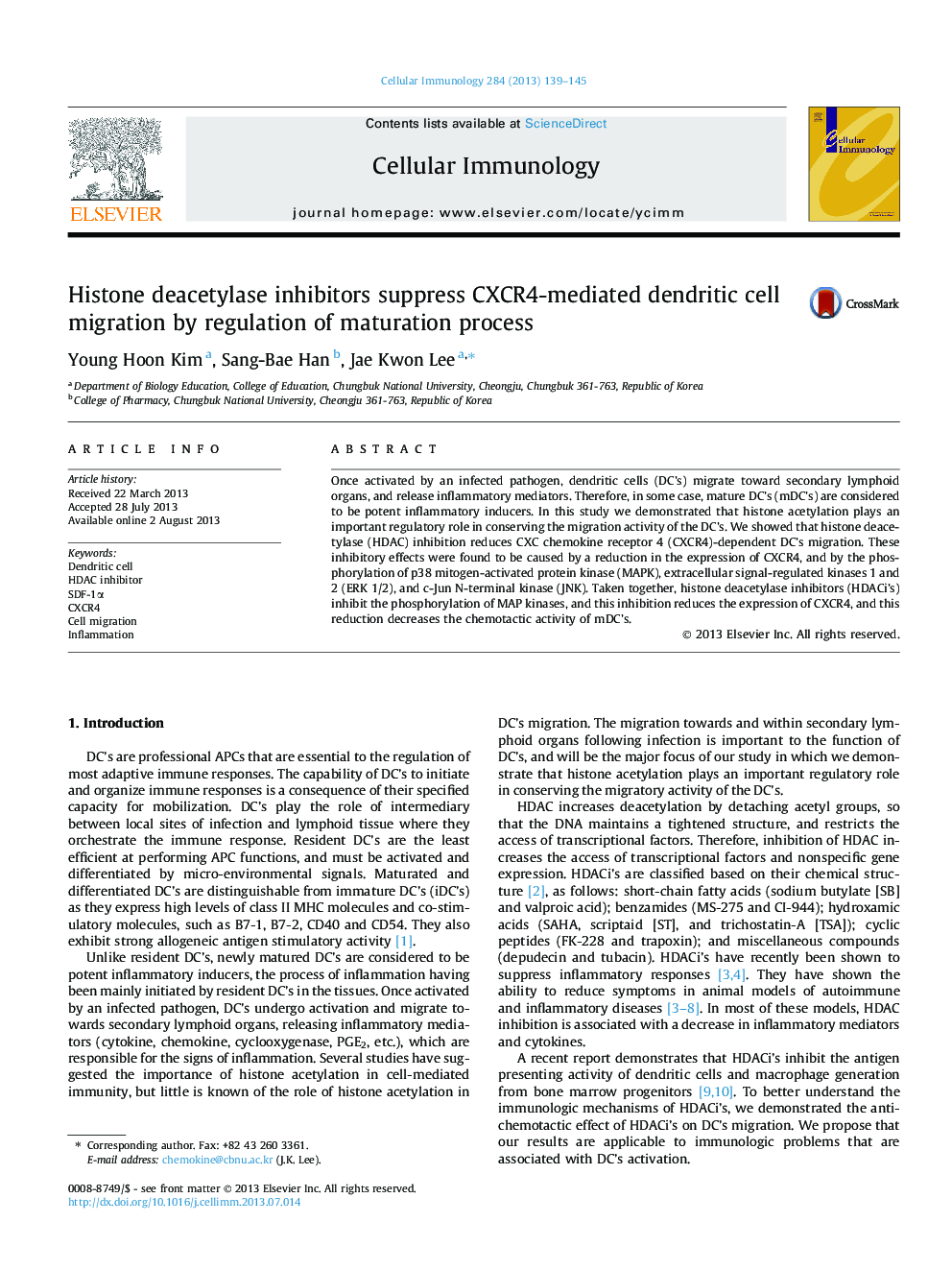| Article ID | Journal | Published Year | Pages | File Type |
|---|---|---|---|---|
| 8463922 | Cellular Immunology | 2013 | 7 Pages |
Abstract
Once activated by an infected pathogen, dendritic cells (DC's) migrate toward secondary lymphoid organs, and release inflammatory mediators. Therefore, in some case, mature DC's (mDC's) are considered to be potent inflammatory inducers. In this study we demonstrated that histone acetylation plays an important regulatory role in conserving the migration activity of the DC's. We showed that histone deacetylase (HDAC) inhibition reduces CXC chemokine receptor 4 (CXCR4)-dependent DC's migration. These inhibitory effects were found to be caused by a reduction in the expression of CXCR4, and by the phosphorylation of p38 mitogen-activated protein kinase (MAPK), extracellular signal-regulated kinases 1 and 2 (ERK 1/2), and c-Jun N-terminal kinase (JNK). Taken together, histone deacetylase inhibitors (HDACi's) inhibit the phosphorylation of MAP kinases, and this inhibition reduces the expression of CXCR4, and this reduction decreases the chemotactic activity of mDC's.
Related Topics
Life Sciences
Biochemistry, Genetics and Molecular Biology
Cell Biology
Authors
Young Hoon Kim, Sang-Bae Han, Jae Kwon Lee,
